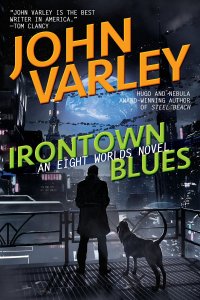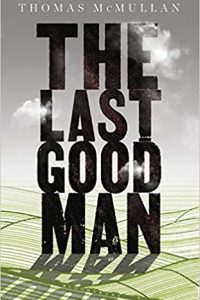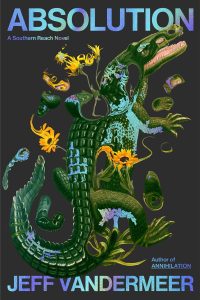Paul Di Filippo Reviews Irontown Blues by John Varley
Irontown Blues, John Varley (Ace 978-1-101-98937-1, $16, 304pp, trade paperback August 2018
 The science fiction and fantasy genres are conducive to long-lived series. Any number of writers who have managed to contrive extensive careers have found fandoms who relish receiving continuing installments of their favorite sagas. Sometimes enthusiastically, sometimes reluctantly, these writers keep the franchises ticking along. Jack Williamson gave us The Legion of Space in 1947–and in 1983 offered The Queen of the Legion. Poul Anderson launched his Technic series in 1951 and continued it for the next thirty-plus years. Begun in 1942, Asimov’s Foundation tales ran for an additional fifty years. Nor is this practice limited to Golden Agers. The first Xanth book was issued in 1977, and a new contribution appeared in 2017 for the fortieth anniversary.
The science fiction and fantasy genres are conducive to long-lived series. Any number of writers who have managed to contrive extensive careers have found fandoms who relish receiving continuing installments of their favorite sagas. Sometimes enthusiastically, sometimes reluctantly, these writers keep the franchises ticking along. Jack Williamson gave us The Legion of Space in 1947–and in 1983 offered The Queen of the Legion. Poul Anderson launched his Technic series in 1951 and continued it for the next thirty-plus years. Begun in 1942, Asimov’s Foundation tales ran for an additional fifty years. Nor is this practice limited to Golden Agers. The first Xanth book was issued in 1977, and a new contribution appeared in 2017 for the fortieth anniversary.
Our subject today, John Varley, is another case of creative longevity applied to the same narrative realms. His very first sale from 1974, “Picnic on Nearside,” introduced his Eight Worlds future history. And his new novel continues exploring that conceptual space. Let’s call it, near enough, the forty-fifth anniversary of his franchise. That’s a long time for any artist to be plowing the same fields, and a reader rightfully asks: is there still something fresh to say after all this time, and does the presentation hold up to the vigorous heights of the earlier stuff? I am delighted to respond with a resounding “Yes!” on both counts.
Let’s tackle the twin issues of content and delivery one at a time.
First off, the reader should know that this book is the climax to a very loose (readable singly) trilogy whose prior components were Steel Beach (1992) and The Golden Globe (1998). (Right there we have a series-within-the-series that has been going on for twenty-five years!) In the first volume we followed the adventures of reporter Hildy Johnson as she goes head to head with the nigh-omnipotent Central Computer (CC) that rules the human settlement on Luna. The second installment concerned one Valentine Michael Smith, actor and scam artist, as he voyages through the solar system before ending up on Luna and siding with the “Heinleiners,” a rebel group fighting the CC and intent on perfecting FTL travel.
Irontown Blues opens up with the CC having been defeated a few years ago and Luna experiencing a multiplicity of regimes. (Irontown itself is an unconstrained place of exiles and rogues on the model of Hong Kong’s infamous Kowloon Walled City.) The event that toppled the CC is known, in suitably noirish fashion, as The Big Glitch. I say “suitably noirish” because our hero, Chris Bach, who narrates about half the chapters, is all about antique noir. He lives with fellow reenactors in Noirtown, dresses like a 1940s private eye, and in fact earns his living by doing investigations of all sorts. (The Luna of this era is an interesting blend of a post-scarcity utopia and a libertarian prosper-or-suffer economy.) Chris’s partner is a uplifted canine named Sherlock. About half of our story is given through Sherlock’s eyes (and nose!), via a certain filter. That filter is a human woman named Penelope Cornflower, a trained dog-to-human mental interfacer who transcribes Sherlock’s consciousness for the reader. (By the book’s end, she will assume a larger role than you might at first imagine.)
With this cast in place, we open with a mystery woman soliciting Chris’s services to track down the fellow who infected her with mutant leprosy. So far, so straightforward. The reader is prepped for a standard “SF Future Noir,” along the lines of Robert Sawyer’s Red Planet Blues or the Ray Electromatic Mysteries of Adam Christopher. But here’s where Varley goes cunningly lateral. We soon learn that the ostensible crime is a mere MacGuffin, and that what’s really at stake is the political-cultural shakeout from The Big Glitch, involving the Heinleiners and remnant partisans of the Central Computer. Soon Chris is reliving the horror show that was The Big Glitch, in which he participated intimately, almost dying. And he and Sherlock are being forced to admit that only by entering the dreaded precincts of Irontown will they find any answers to their quest.
So the content of this novel becomes not the red herring case of a woman with mutant leprosy, another predictable Chandlerian five-finger exercise, but rather the further exfoliation and climax of the matters set up in the first two books: the nature of individual liberty versus societal obligations; the limits of power; and the future of our species. But such weighty topics are firmly embedded in some thrilling, surprising exploits deftly told.
This brings us to the book’s actual prose and affect. Varley’s work has always been distinguished by a couple of traits: the use of the famous Heinlein “transparent style,” a vivid simplicity of diction and construction, akin to Twain’s, that nonetheless allowed for a distinctive voice; and a breezy, jaunty tone that dealt with life-and-death issues in a manner of rueful wit and devil-may-care distancing. (This I suspect he learned from Zelazny.) This signature presentation remains fully on display here. Varley manages not to sound jaded or weary after four decades of carving out this future history, and that’s quite an accomplishment. But he extends his narrative tactics from what we expect from past outings in one important direction, and that is done through the character of Sherlock. He digs into the nonhuman mentality of his dog hero with gusto and inventiveness, breaking new ground in a tradition that goes back at least as far as Stapledon’s Sirius (1944).
A dog must be clever to pretend. I have learned how to pretend. Other dogs cannot pretend. They always wag their tails when they are happy or hang their heads when they are sad. I can wag my tail when I am sad. I can even wag my tail when I am angry! I am so clever!
This combo of Chris’s human desires and Sherlock’s complementary but alien motives gives us a whizbang adventure with an emotional payoff at the climax that neither tactic alone could have provided.
It’s probably too much to hope for another four decades of Eight Worlds stories, but a dog’s nose should exceed its range, or what’s a heaven for?
 While you are here, please take a moment to support Locus with a one-time or recurring donation. We rely on reader donations to keep the magazine and site going, and would like to keep the site paywall free, but WE NEED YOUR FINANCIAL SUPPORT to continue quality coverage of the science fiction and fantasy field.
While you are here, please take a moment to support Locus with a one-time or recurring donation. We rely on reader donations to keep the magazine and site going, and would like to keep the site paywall free, but WE NEED YOUR FINANCIAL SUPPORT to continue quality coverage of the science fiction and fantasy field.






